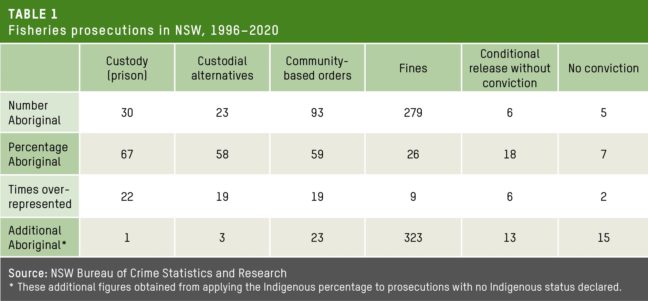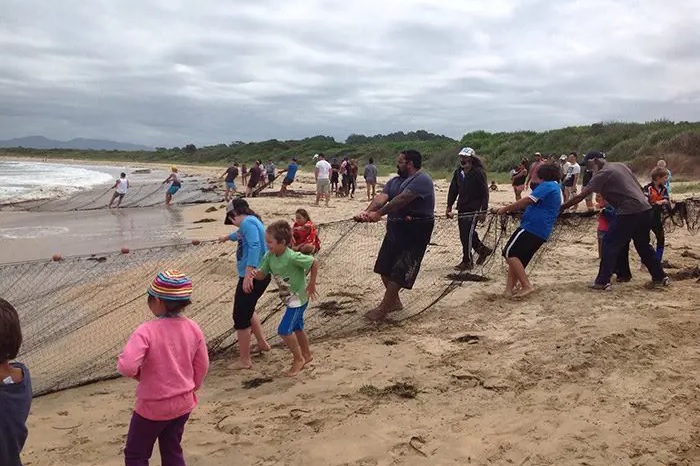For 65,000+ years the First Peoples of Australia have been custodians of this land, practising culture and protecting Country.
Yet today, Aboriginal communities along the South Coast of NSW face constant surveillance, harassment and prosecution for carrying out their ancient fishing traditions. This has resulted in hundreds of First Peoples from these communities being fined, prosecuted and even jailed for these offences over the past two decades.
Oxfam Australia has worked with these communities since 2018 to help amplify their voice and secure just recognition of their traditional rights to fish and gather. We’ve helped produce a series of short documentaries, initiated some media and political engagement, and provided modest financial support to the NSW Aboriginal Fishing Rights Group.
This work has helped to bring about a Parliamentary inquiry into the failure of successive NSW governments to recognise Aboriginal cultural fishing. Oxfam worked with people from these communities to lodge their submissions and in some cases, tell their stories publicly for the first time. In one submission, Gadigal Wondandian and Wulbunja man Bill Cooley told of how his prosecutions led to his marriage breakdown and homelessness.
Oxfam’s submission showed evidence of systemic bias against Aboriginal people going back 25 years. We obtained data (see table 1 below) showing how the rate of over-representation in court proceedings increases with the severity of the punishment, culminating in Aboriginal people account for eight of ten people jailed for these offences in since 2009.

We argued that the elders who still engage in traditional fishing are among the fittest and healthiest Aboriginal people found in this country, so the government’s campaign against them is contrary to its Closing the Gap police. And we also demonstrated that there’s a better way forward, such as the Torres Strait and New Zealand examples that have involved First Peoples in the sustainable management and exploitation of these resources.
Wally Stewart, a Walbunja man and an applicant for the South Coast native title claim, wrote this week to thank the organisations that had helped the community to tell their stories. He said that some of the stories were “heartbreaking to listen to…and our people had to relive that by telling their story, and there was the occasional good story, but not many,” Stewart wrote on the fishing rights group’s social media page.
Without you guys coming on board giving up your personal time to support our south coast communities for this inquiry, we may not have been able to do what we just achieved.
Wally Stewart, Walbunja man
“So on that note I want to THANK YOU on behalf of all the people who rang you guys up to help them put their submission together. You will not be forgotten.”
We’ll keep you posted on this inquiry and Oxfam’s broader campaign to influence decision-makers.
And here’s a link to the homepage for the inquiry by the NSW Legislative Council’s Portfolio Committee No. 4 – Regional New South Wales, Water and Agriculture:
Commencement of the Fisheries Management Amendment Act 2009 (nsw.gov.au)



